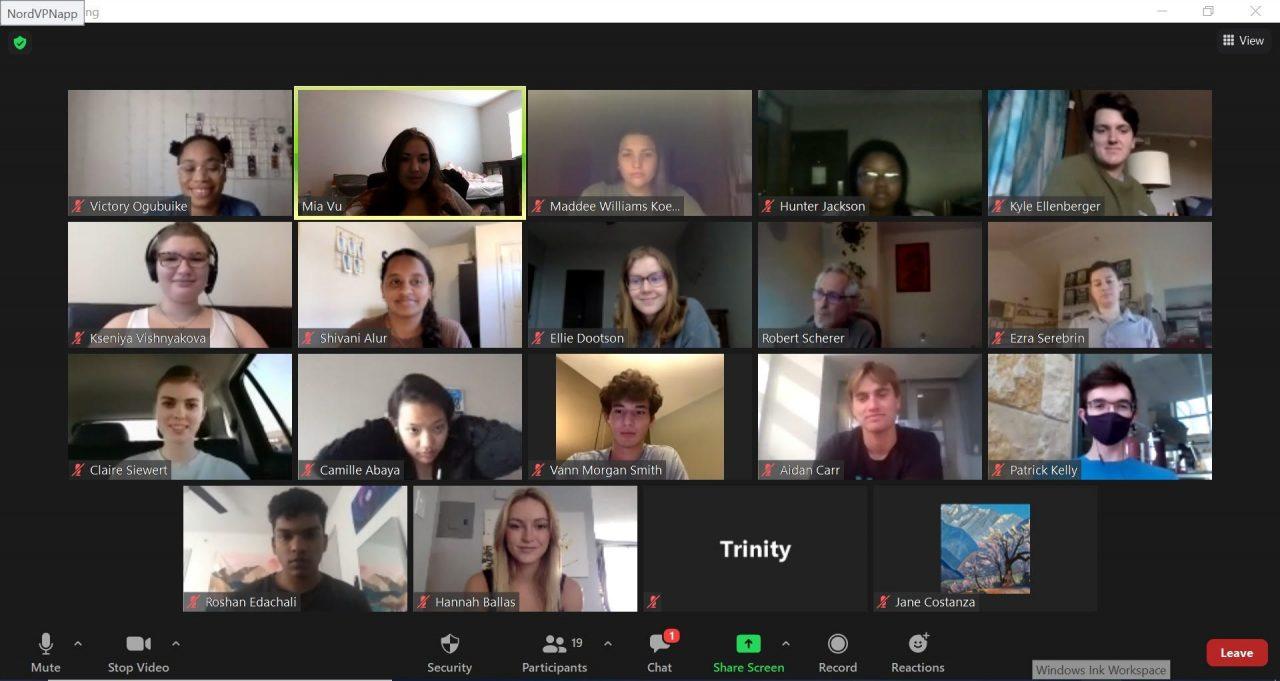With the online semester introducing a new set of opportunities for academic dishonesty, the academic honor council has seen a spike in cases this fall.
“Unfortunately, we do have a lot more cases this semester with being online. There are just more opportunities, and I think a lot more scrutiny from professors,” said Mia Vu, junior neuroscience major and external chair of the council. “In a normal year, we get quite a few plagiarism cases, but now we’re just seeing a lot more collaboration: students working together on exams or on projects they’re not allowed to.”
The role of the academic honor council is to encourage academic integrity among its students and to hold individuals accountable for their actions in a just way. Similar to years prior, the council emailed first-year students the academic honor code, which students were required to sign to signify their allegiance to academic integrity.
During new student orientation, first-years were also required to watch a video detailing the academic honor code at Trinity and expectations.
“I think there’s just a different feeling to it. It’s a different experience from sitting in Laurie Auditorium with all of your peers that you just don’t get watching a YouTube video,” Vu said.
Despite the changing environment, the honor council continues to hold meetings and hearings online.
“I feel like our role has transitioned pretty well to online. We do all of our meetings and hearings over zoom because we have quite a few members who are at home. We still want them to be active and participate,” Vu said.
Thomas Peña, junior business analytics & technology and finance double-major and council member, noticed a trend in the implicated students.
“Whereas during normal times a large majority of cases would be from first-years, a large number of cases are being processed against sophomores, juniors and seniors,” said Peña. “There have been large numbers of multi-student cases as well.”
Due to TLearn’s updated system and the school-wide shift to virtual learning, catching instances of cheating has become much easier. Professors are able to see when students click between tabs on a quiz or exam, the timestamp of when it happened and what page they visited.
“I think a lot of us didn’t know that until now,” said Vu. “Cheating on a test was a little harder to do in-person. Professors are more aware of it with online testing.”
Although there is a clause in the academic honor policy at Trinity that addresses the increased use of technology in cheating, it is not completely applicable to the move to complete online learning. Vu confirmed that they are working on revising the policy to fit online learning, specifically remote exams.
Circumstances concerning where students are living this semester may contribute to the increase in violation cases, as the change in environment and increased isolation can produce further stress to the usual list of demands.
“A big concern of mine is how that stress transfers to them in maintaining academic integrity. Because you know, I get it. It’s hard. It’s different. It’s lonely. You don’t get to interact with your peers or receive that same support that you normally do,” said Vu.
As external chair, Vu’s job consists mainly of educating the student population and communicating with students, faculty and administration. While the council usually hosts small social events throughout the year to spread awareness about academic integrity, Vu is attempting to do the same virtually this year.
“We’re doing a lot more to expand our communication just because we’re finding that’s a big problem lately with students going online. We’re trying to do more with informing students of ‘This is what you can do to avoid complications’ or ‘Here’s some things to consider when taking your exams.’ We’re trying to give students more information, especially since this is all new for many of us,” said Vu. “For me, your degree means so much more if you work hard for it and have done it fairly.”
Vu also speaks for the council, clarifying that they are not “just some scary, overhead punishment board.”
“The honor council creates a fair system for students and professors,” said Vu. “It gives everyone a chance to have their voice heard. “







